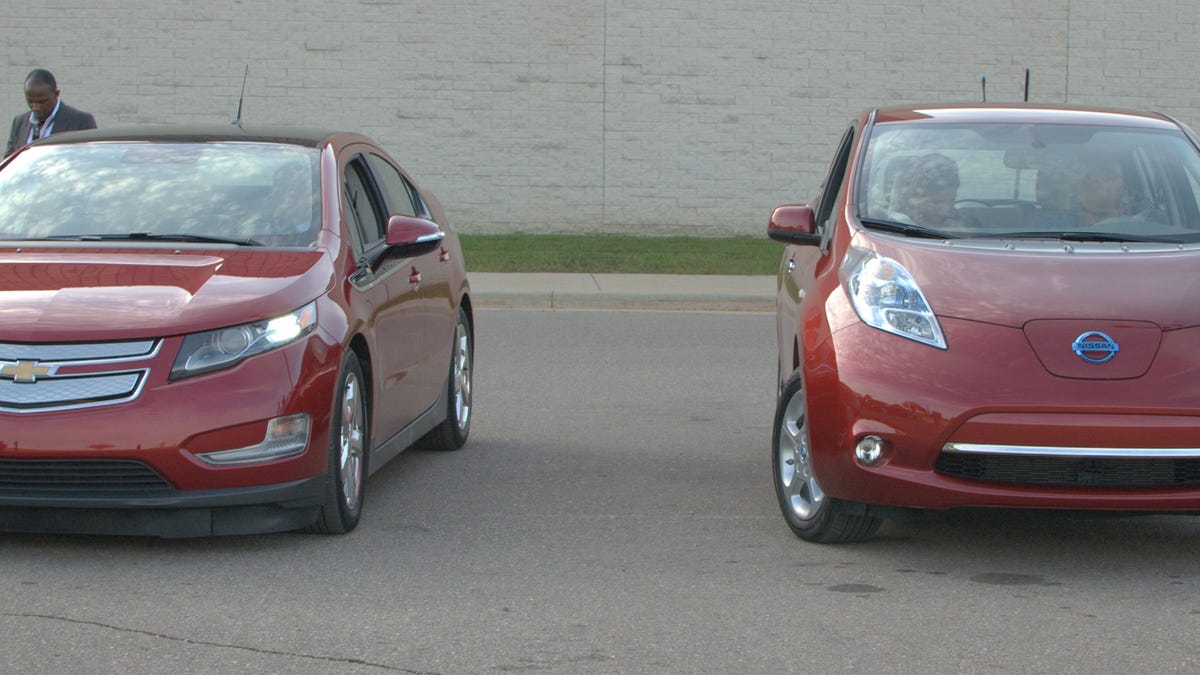Chevy Volt sales take a hit
Sales of the Nissan Leaf and Chevy Volt electric cars start slow in 2012, with Volt sales apparently impacted by a now closed safety investigation.

Sales of the Chevrolet Volt and Nissan Leaf dipped in January, with Volt sales apparently hit by a now-closed safety investigation.
The volume of these high-profile electric cars sold is closely watched as a barometer of consumer demand. Several more battery-electric and plug-in hybrid models from other automakers are expected to come out this year and next.
General Motors said yesterday it sold 603 Volts in January of this year, more than the 321 it sold in January last year. GM shipped 1,529 Volts in December last year, its best month since production, although the yearly total of 7,671 was less than it had hoped.
Nissan sold 676 all-electric Leaf sedans in January of this year, less than the 954 it sold in December last year. The company hit a volume of 10,000 in North America this month.
The image of the Chevy Volt, an electric car with a gasoline generator for extended range, was damaged last fall when the National Highway Traffic Safety Administration opened an investigation. A side collision test had caused a fire three weeks after impact, which was followed later by fires in two other tests.
GM voluntarily made changes to address the cause of the problem, which was related to the battery's liquid cooling system, and the NHTSA last month closed the investigation. It also said the Volt and other electric vehicles do not pose a greater risk of fire than gasoline-powered vehicles.
In the scheme of overall sales volume, the Leaf and Volt represent a small fraction. For every Leaf Nissan sells, it sells more than 14 Rogue crossover SUVs, for example. But battery electric vehicles and hybrids help automakers meet fuel economy mandates and are considered strategic technology for the future.

